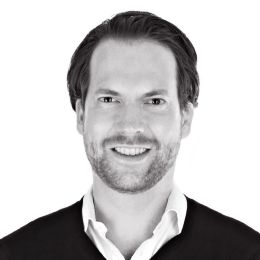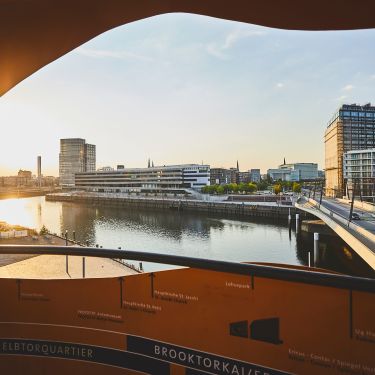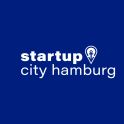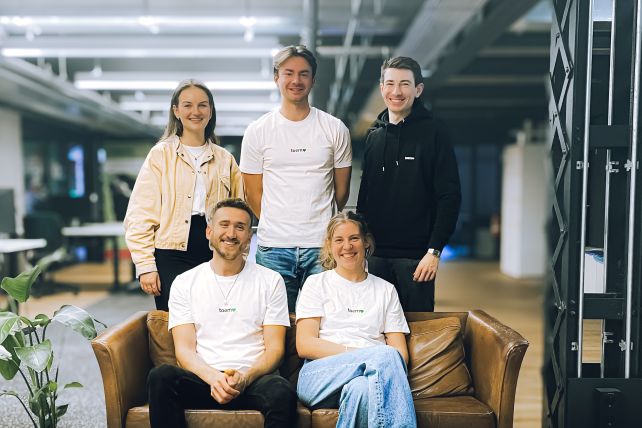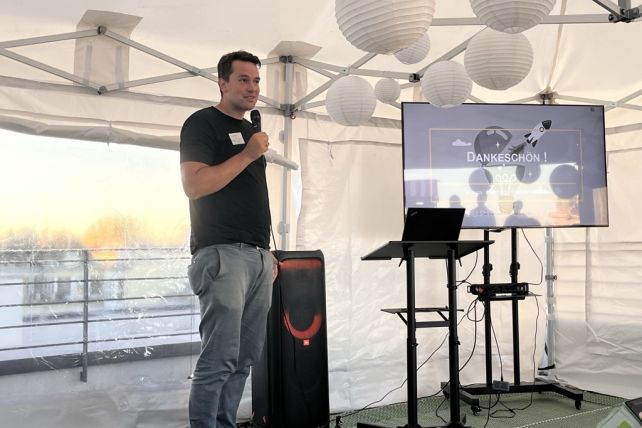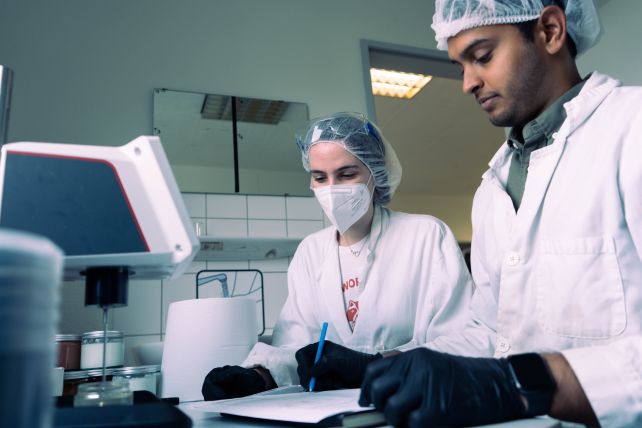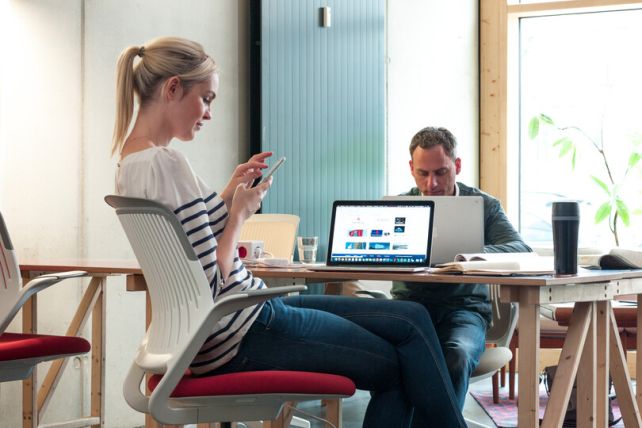E-FARM makes Hamburg a gateway to the world of agricultural machinery
How do agricultural machines fit in with a city of millions like Hamburg? Very well, as the startup E-FARM proves. After all, it combines the Hanseatic city's commercial tradition with advanced technology on its trading platform. Just recently, that was worth 11 million euros to a number of investors.

Market gap recognized, E-FARM founded
No, economist Dr. Nicolas Lohr did not ride a tractor to school as a child, nor did he grow up on a farm. He first came into contact with agriculture through his profession. Initially, he worked as a management consultant for Mercedes and became familiar with the Truck Store concept, which promotes the sale of used trucks from authorised dealers. Truck Store defines itself as a network and offers both the company and its dealers a number of advantages. For example, it increases the chance for Mercedes to sell a new truck, as dealers have less to worry about with the used vehicles they usually have to trade in as part of the deal process.
Then, when Nicolas went to work for a leading global agricultural machinery manufacturer, he realised that they didn't have a marketplace that worked in a similar way to Truck Store. Yet business is very similar for tractors or combines as it is for trucks. Here, too, there is a demand for both new and used equipment. Having his own company had not necessarily been a lifelong dream of Nicolas until then, but the opportunity to fill a gap in the market here was too tempting. So he founded E-FARM at the beginning of 2015.
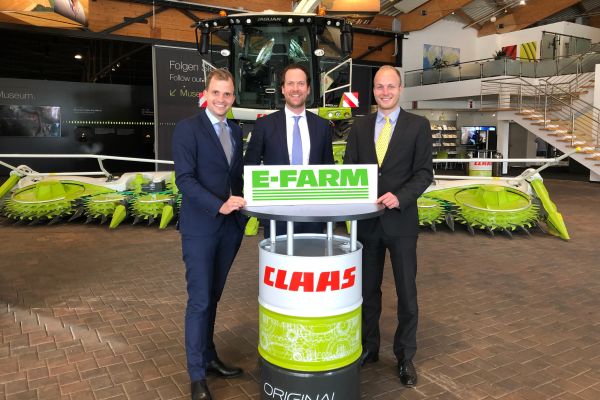
First steps and the big breakthrough
The transaction marketplace was supposed to solve a number of problems: lack of price transparency, constraints in local markets, hidden machine deficiencies, and even fraud. E-FARM was to blaze a new trail in providing payment and transportation security, cost efficiency, and personalized service across Europe. The startup's first market entry was with 15 agricultural machines, all exclusives. This did not yet bring the desired success, which is why E-FARM dispensed with exclusivity and was able to offer a wider selection instead. E-FARM now works with more than 1,000 partner dealers.
In 2016, Franz von Consbruch, who still acts as one of two managing directors, and Kaspar Sternberg, responsible for sales, joined the core team. Nicolas considers both of them co-founders to this day, as they have contributed significantly to the development of E-FARM. In 2018, the company had already established itself quite well with a turnover of 6 million euros. In 2019, the final breakthrough and recognition for the work done so far followed. Agricultural machinery manufacturer Claas stepped in as a strategic minority shareholder. The company, which celebrates its one hundredth birthday this year, is one of the global market leaders in its sector and operates its own used machinery business. So there were sensible synergies here for both parties involved.

Investments in a global market
No wonder, then, that Claas was once again involved in the Series A financing round of 4.5 million euros a year later. It was joined by Swedish investment firm byWit and German AgTech investor Amathaon Capital. The highlight to date was the Series B financing round announced at the beginning of June for a total of 11 million euros, in which the three existing investors once again participated.
Particularly attractive to investors is the fact that E-FARM serves a huge market, in 65 countries worldwide. However, it generates 95% of its sales in 15 core European markets. In Europe alone, the market volume is 30 billion euros with a target group of around 10 million farmers. The international focus has been part of the business concept from the very beginning. This is also due to the fact that special agricultural machinery is not as easy to find at the dealer around the corner as, for example, a Golf in the automotive sector. So it is quite possible that a farmer from northern Germany will find what he is looking for with a supplier from Spain.

E-FARM offers a comprehensive service
A team of around 40 people, two-thirds of whom are based in Hamburg, accompanies the entire sales process. First, potential buyers can use a search mask to enter the type of agricultural machine they are interested in. In doing so, they can give preference to certain brands and models and make detailed specifications regarding engine power, equipment, location and a number of other criteria. If a suitable offer is found, customers can book an inspection, during which the actual condition of the equipment is checked.
After a report has been prepared, an order is placed in a good 60% of cases. The entire transaction is then handled by E-FARM. The startup buys the equipment at conditions that can result in cost savings of up to 20%. Customers also benefit from having a single point of contact for all other services, such as transport and billing. Much of this is still done by telephone. In the future, the processes are to be digitalised as far as possible, including via a SmartTrade app.
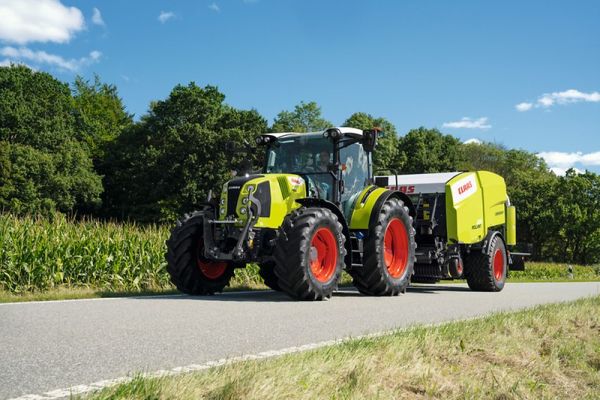
There is still a lot of potential
For modern farmers, the smartphone is as much a part of everyday life as the tractor, which is why they are easy to reach with marketing campaigns in social media. On Facebook, E-FARM has over 200,000 fans. In comparison, the figure of just over 2,500 agricultural machines sold so far seems small, but it must be remembered that different prices are paid in this market than for used cars. The average basket of goods is 60,000 euros and amounts of half a million are sometimes paid for special combine harvesters.
Since 2016, annual sales have grown by an average of 100%. A figure of 1,000 transactions is quite realistic for 2023. It would be conceivable to expand the trade in used equipment to other areas as well, but that is not on the agenda at E-FARM in the foreseeable future; the growth opportunities in agricultural machinery are still too great. Rather, the goal is to further increase conversion following inspection reports and to expand the range of services and add financing options. Further partnerships with companies like Claas are also within the realm of possibility.
Even if E-FARM, as mentioned at the beginning, does not appear to be a typical Hamburg startup at first glance, the Hanseatic city is exactly the right location for founder Nicolas Lohr, who is originally from Hamburg. And this is by no means only because of its trading tradition:
